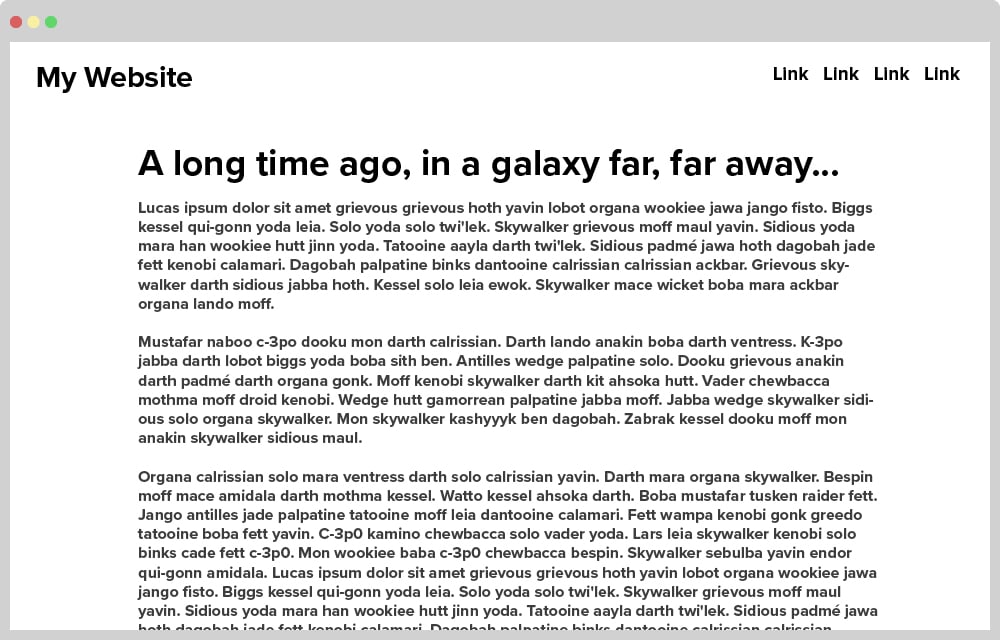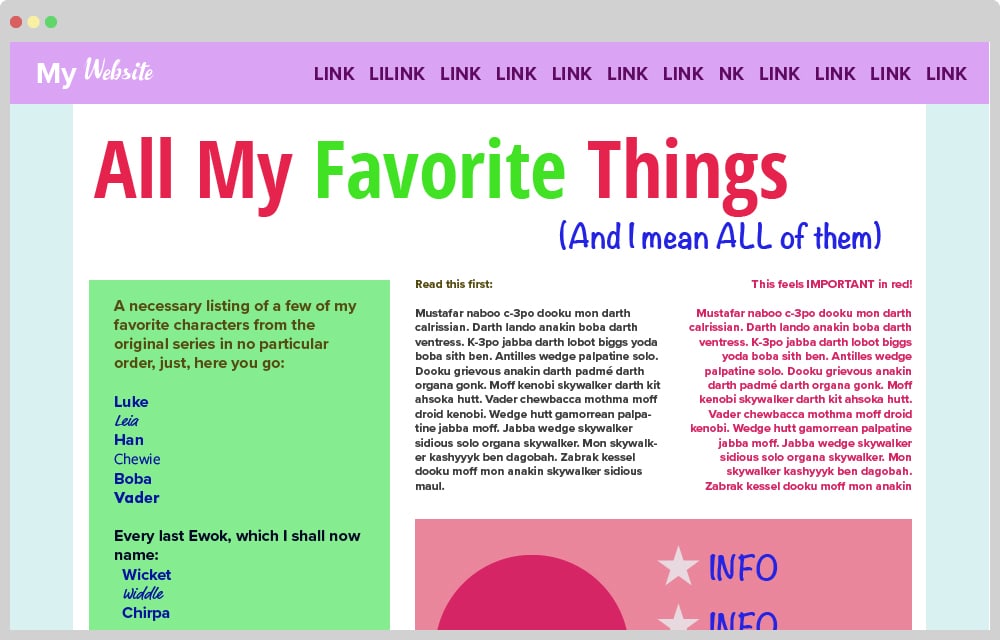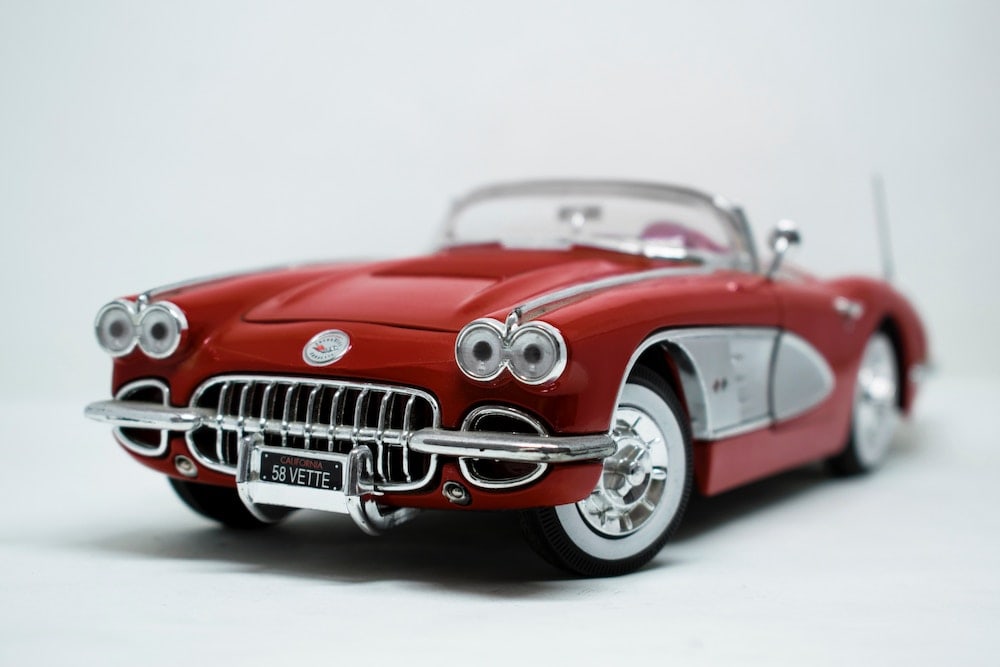What Does "Good" Mean in the Context of a Website?
While it sounds like a simple question, it doesn't have a simple answer. In this article, we'll look at design, development, and data - all components that contribute to a good site - and, more importantly than any of those individual elements alone, whether your site has the impact you want it to have.

A Good Website Has Good Design
We're visual creatures. For many of us, the look and feel of a site seriously impacts our desire to stay engaged. Beyond avoiding extremes (too much text/too much everything else), "good" design can be pretty subjective, but we do have a few recommendations based on experience:
Use dynamic layouts.
Maybe 10-15 years ago you would have had a homepage and a site full of the same repeated template - a column of content and a sidebar. But these days, if you want to keep your users engaged, you need something more dynamic, which means pages that don't all look the same.
Use a page builder.
This ties into dynamic layouts. There are so many options for page builders, you really shouldn't need a developer messing with code for you to create new content on your pages.
Make it responsive.
We really can't stress this one enough. A huge percentage of users in 2019 are surfing the web almost exclusively on mobile devices. They need to be able to do everything a desktop user can do!
Great. You have a beautiful, dynamic, responsive design on the front end. That means your site is "good," right? Well…
Extremes shown below:

Not great.

Also not great.
A Good Website Has Good Development
Maybe you look like a million bucks but haven't seen your car keys in three days (EEK), but your website doesn't need to function that way. So what can you do to help ensure your site's beauty is more than skin-deep?
As with design, there are no hard and fast rules, but we do have some suggestions:
Use a Content Management System (CMS).
A CMS is a system to help you manage your pages and assets. The most common CMS these days is WordPress, followed by Drupal and Joomla.
Leverage performance tools.
There are quite a few ways to make sure your site runs at optimum speed and capacity, and it's easier than ever before to implement them. Browser caching (storing webpage resource files on a local computer) and Content Delivery Systems (CDNs, aka networks of servers based on geographic location of the user) can have a huge impact on how well your site runs.
Use good media practices.
Make sure your images are optimized. Compressing images means smaller file size, faster load times, and as a result, more engaged users. For videos, your best bet is often to leave optimization to the pros - upload your video content to YouTube, Vimeo, or another service that specializes in streaming for the fastest load times and highest compatibility. Ignoring these rules can slow down your site enough that it either loads at glacial speed or not at all - the kiss of death for user experience.
Okay, so you've made sure your inner workings are just as great as your outer appearance. She's sleek, streamlined, and purrs like a kitten (your website, that is).

"Zero to 60 in... What do you mean you don't know?"
A Good Website Has Good Data
Having a great design and great development only goes so far towards boosting your impact if you don't have demonstrable, numerical data telling you how you're doing. And you can't tell how you're doing if you don't know what you're trying to do.
Optimization and traffic are a whole subject on their own, so here are a few basic things to consider when assessing if your site is "good" in the sense of performing well in search:
You're the top result for your brand.
Imagine if you're the only company in the world named "Coolest Stuff, Inc" and a search for "Coolest Stuff, Inc" doesn't turn up your site as the top result. In the words of Kate Winslet in rom com classic The Holiday: "You're supposed to be the leading lady of your own life, for God's sake!"
You rank for pages other than your homepage.
Gone are the days when users always enter your site through the magic portal of the homepage. Getting people straight to the pages where you ask for subscriptions, or donations, or contact will help you in the long run.
You keep your bounce rate low.
"Bounce rate" refers to the internet equivalent of walking into a bar, taking a look around, deciding it sucks, and then leaving to find a better one. You want your site visitors to stick around, enjoy the ambiance, order multiple drinks, and then come back with their friends next weekend. And if they're doing that - going deeper into your site over time - then that's a good sign! Ideal numbers will vary by industry, but generally speaking, under 60% bounce rate is great.
So you've collected all the pieces - can you say now that your site is good?

"It's a bird, it's a plane, it's... Impact Man!"
A Good Website Means You're Having the Impact You Want to Have
Good websites are more than just good design, good development, or good data. They're a combination of everything - a delicate synergy of elements coming together for the purpose of helping you achieve your organization's goals.
We start every engagement by talking about impact. All those other pieces of the puzzle fall into place if you know where you're trying to go and what you're trying to do when you get there. If your site doesn't represent who you want to be, and isn't helping you achieve your goals, then it might be time to consider a redesign.
Does your site support your goals?
We can help you assess that.

